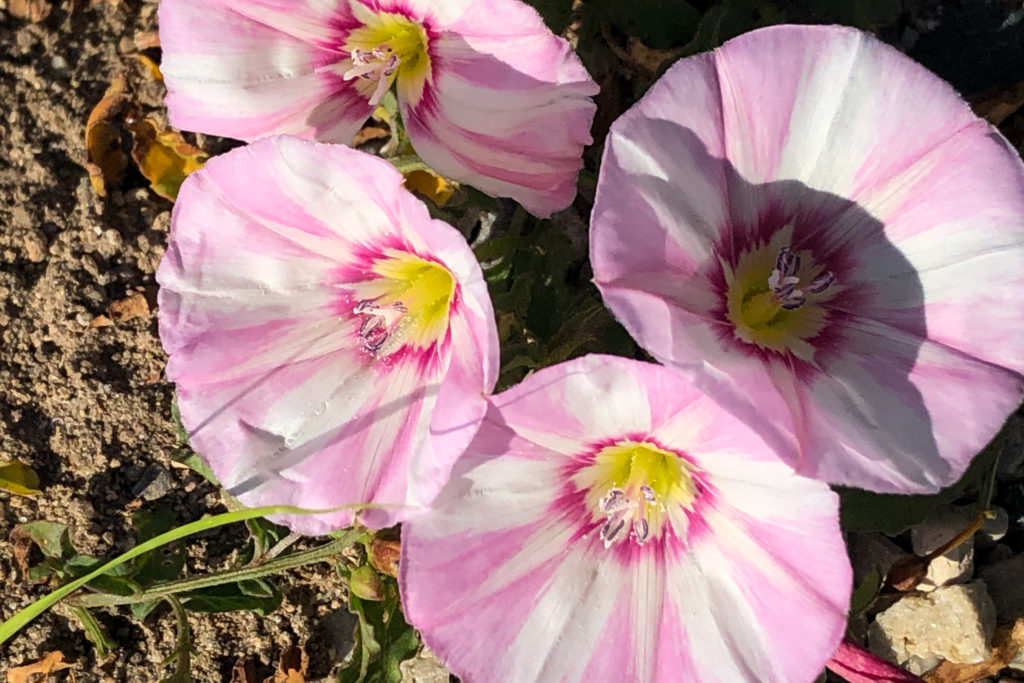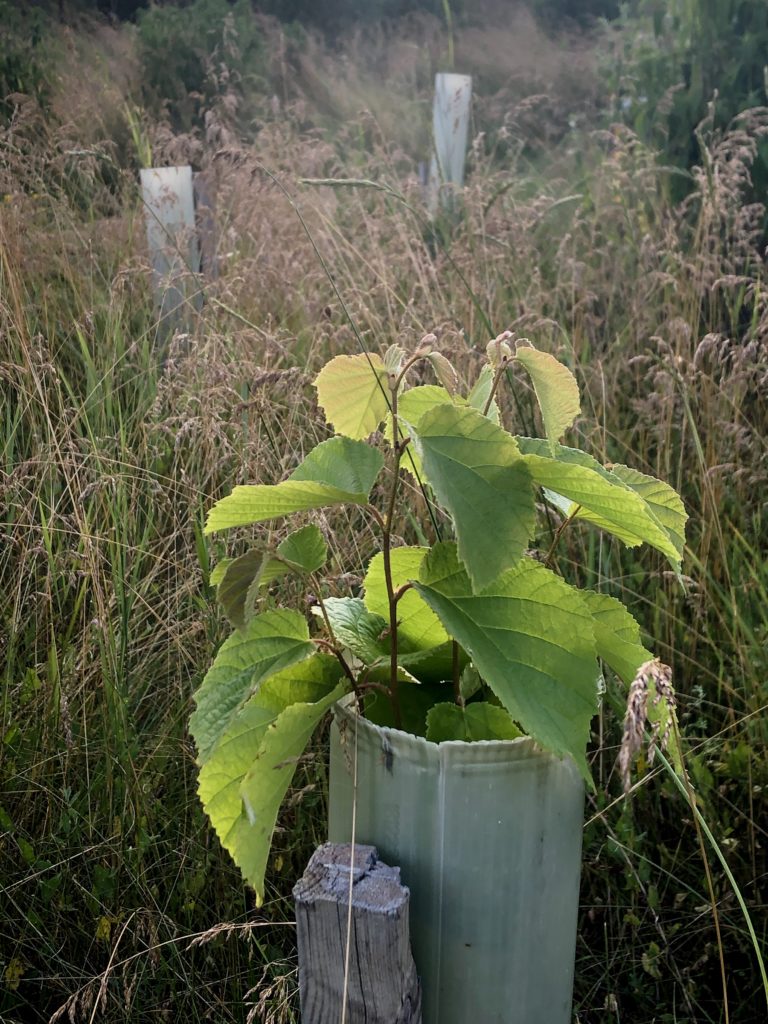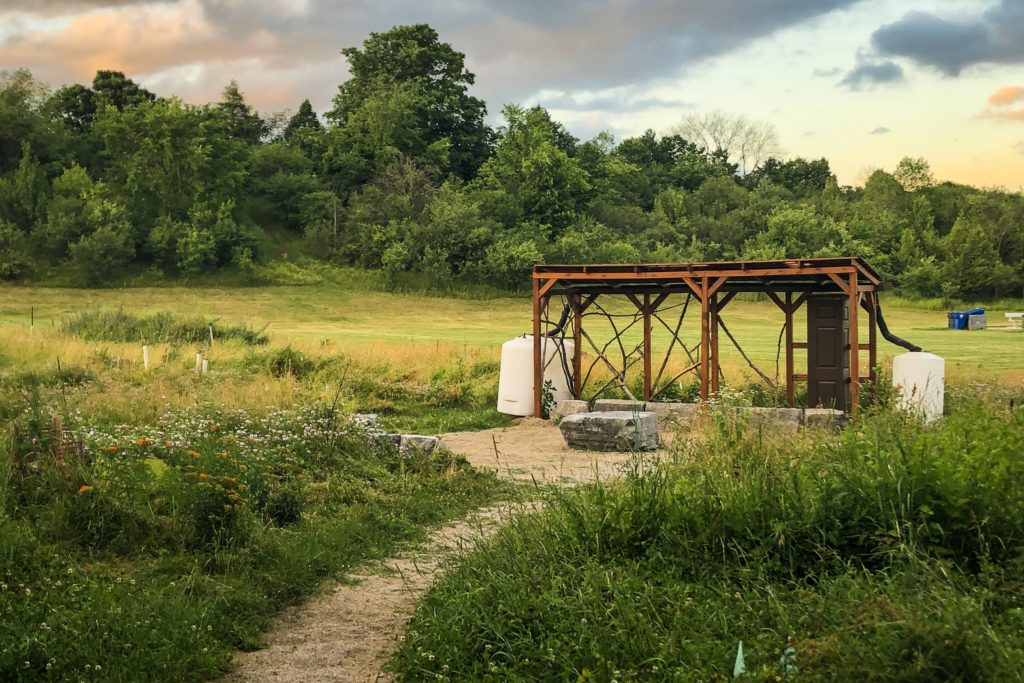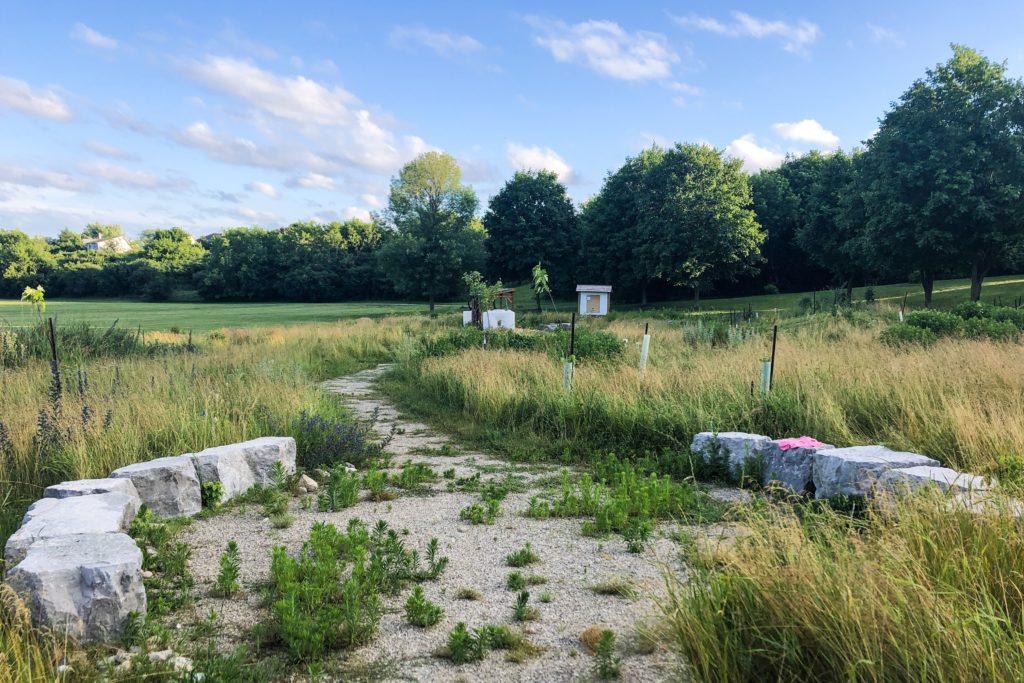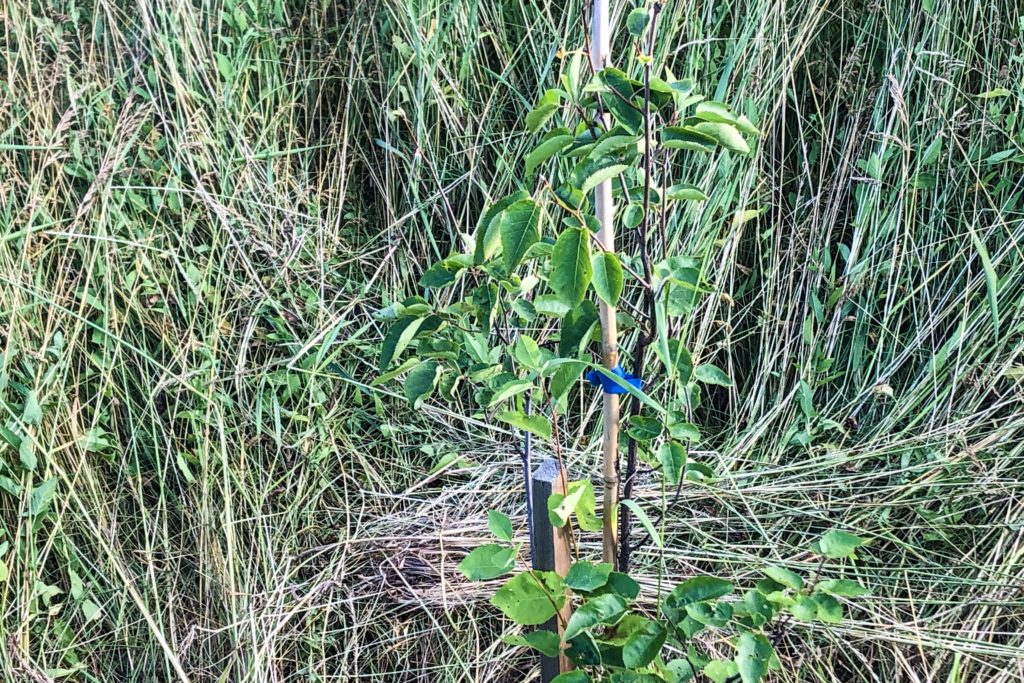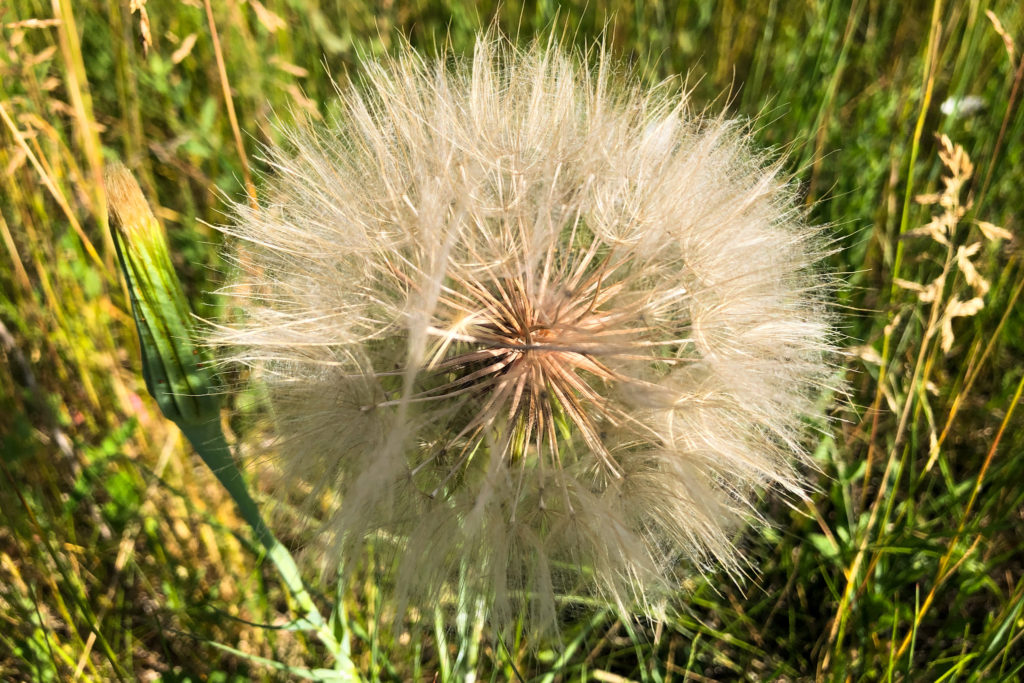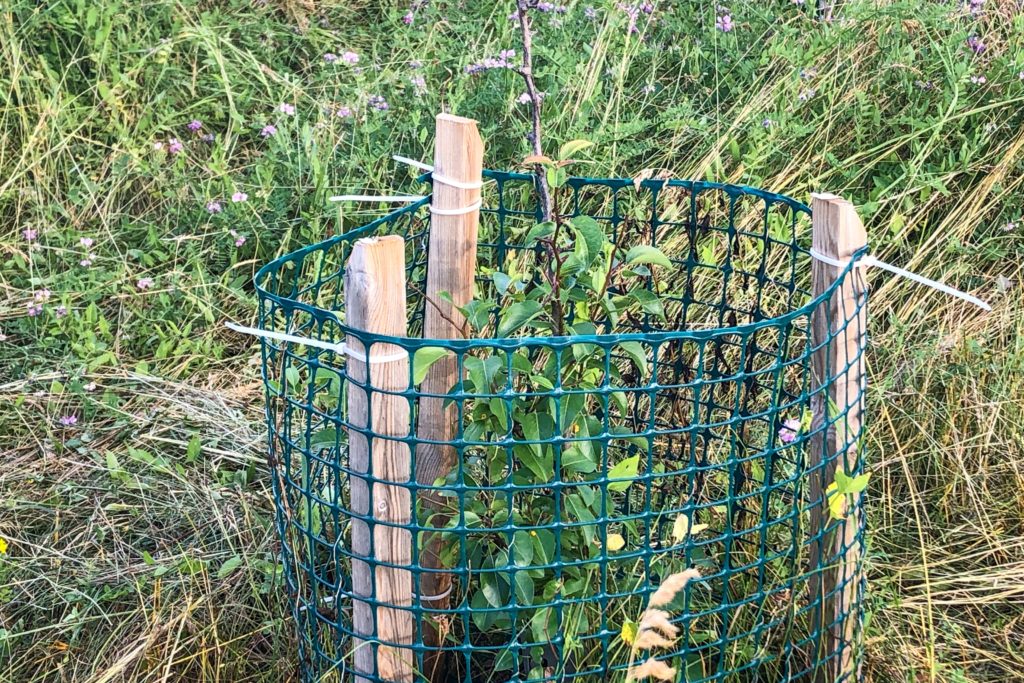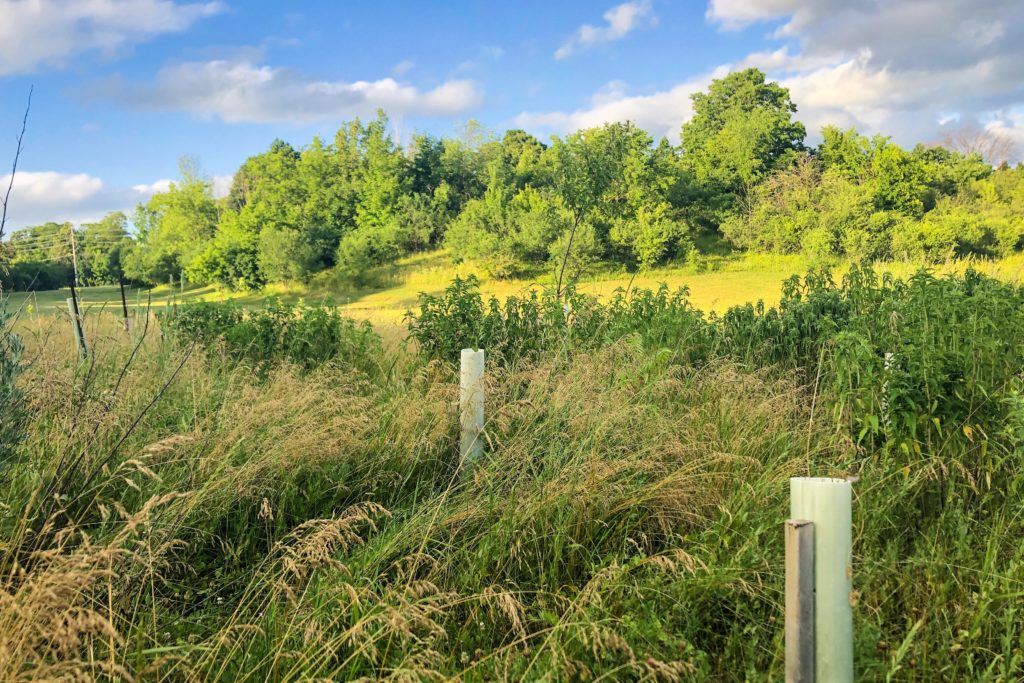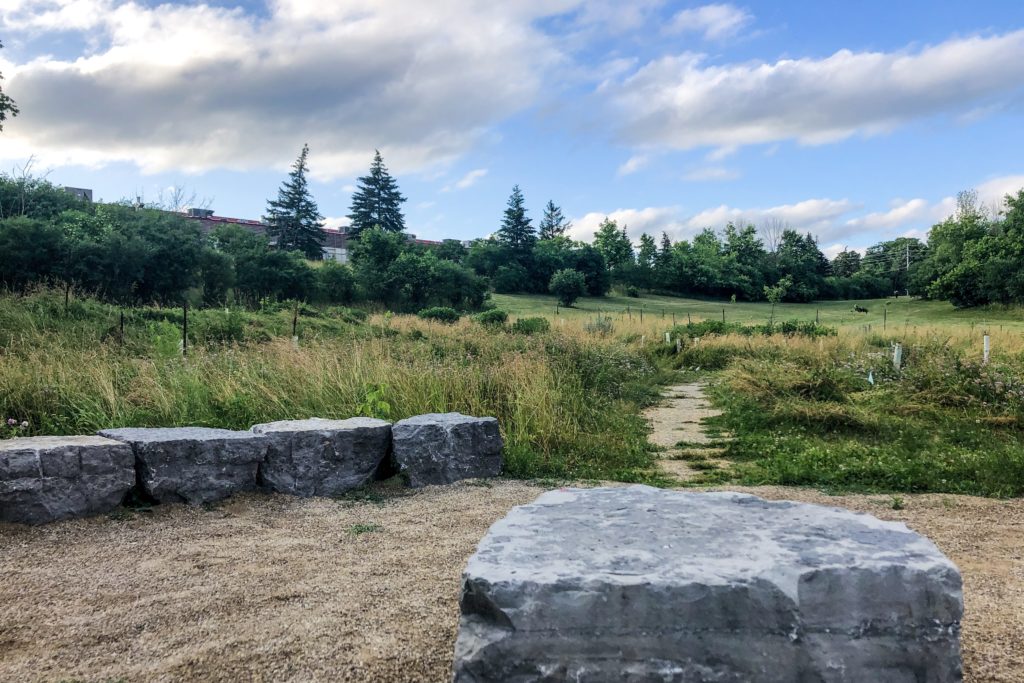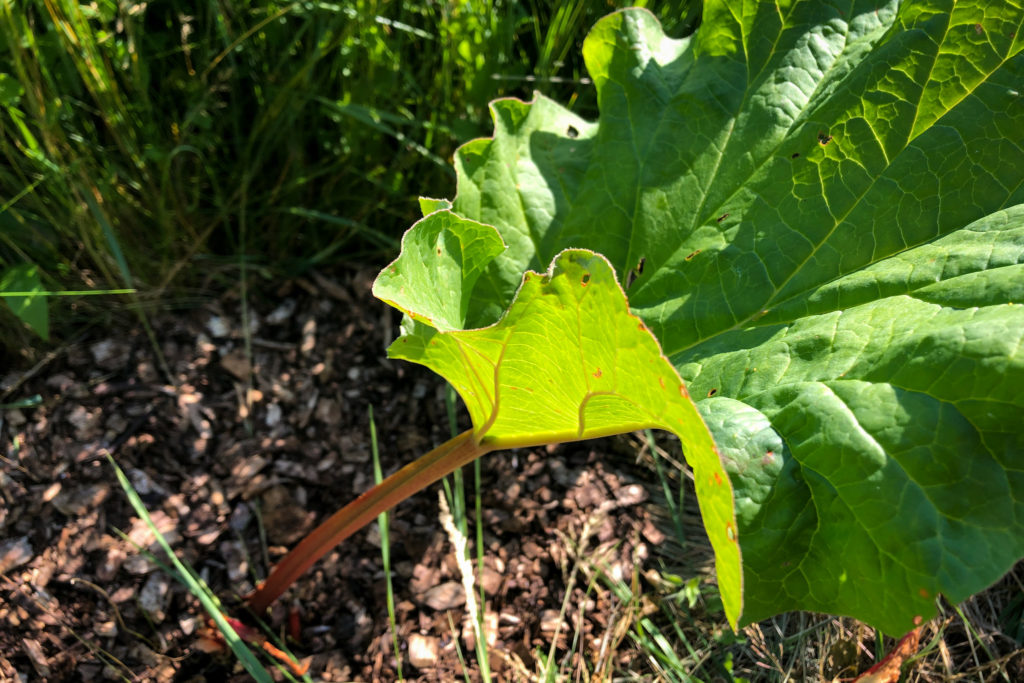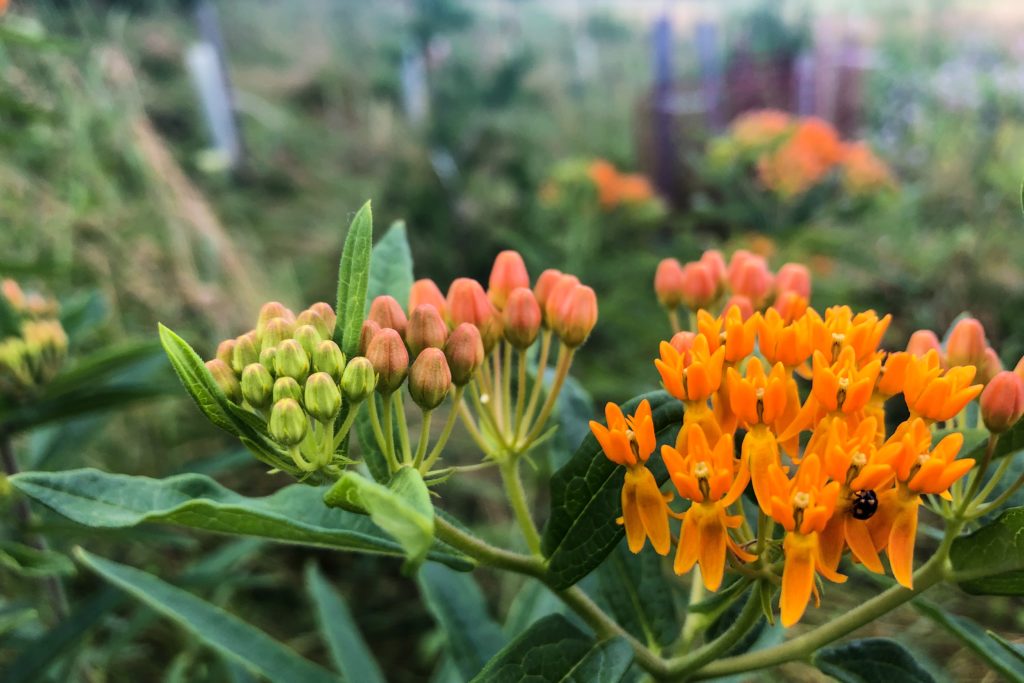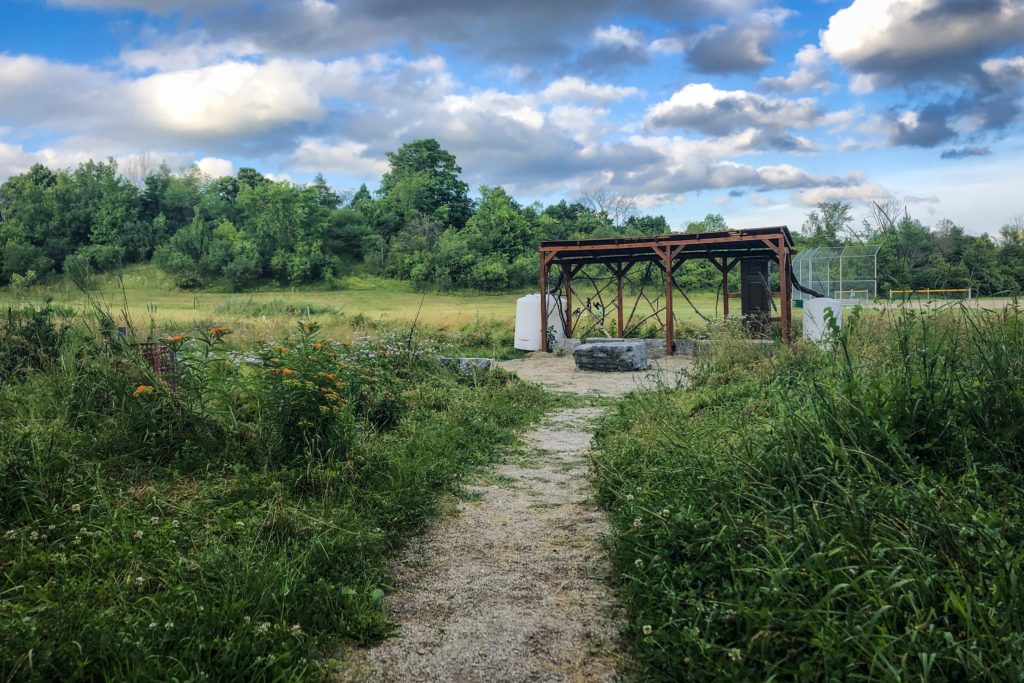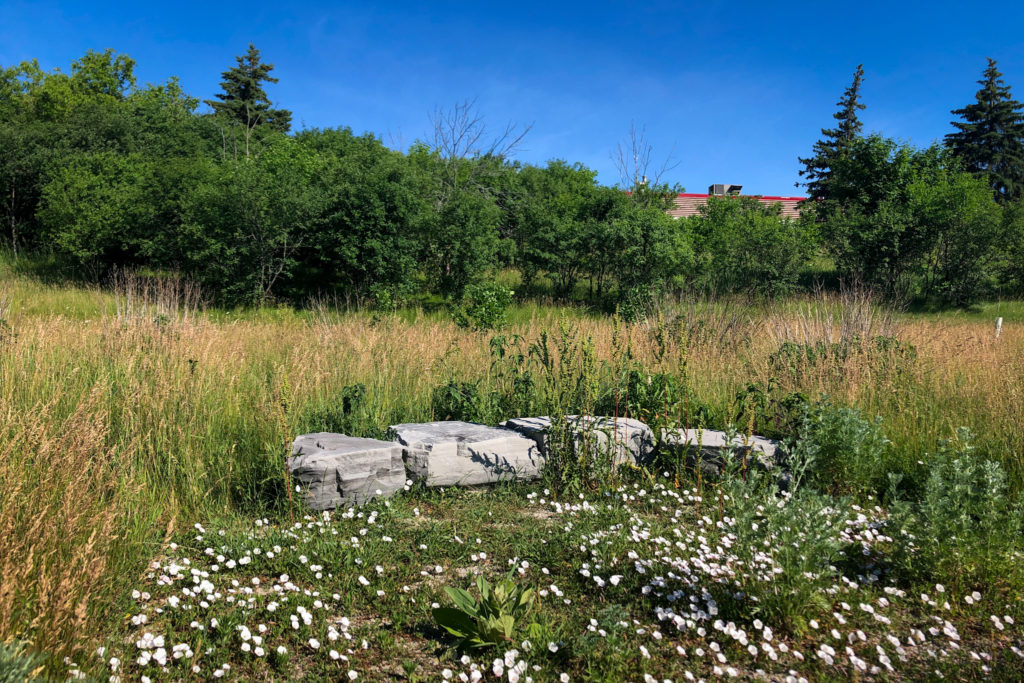On this page
Location
93 Ironwood Road, located in University Village Park.
About the food forest garden
Food forest gardens are a mixture of multi-purpose plants that in part are used to recreate a wild ecosystem. They are designed to grow abundantly including diverse plants with minimal maintenance and to welcome and feed both humans and wildlife.
This large 1/2 acre site currently includes a variety of native plants. Some parts of the site include trees intended to grow into a forest and other parts are being maintained as a wild prairie garden.
The garden (gtigaan in anishinaabemowin) is currently maintained by volunteers and provides a space to harvest edible plants, as well as a gathering space for hands on learning on topics of food security, reconciliation with indigenous peoples, urban green space design, water management, pollinator habitat and natural heritage. It also provides opportunities to learn from plants our original instructors (often referred to by indigenous and allies as our plant kin).
Food Forest/Re-Wilding Garden History and Evolution
- 2016-Organizing committee formed to initiate initial plantings by community volunteers and neighborhood group
- 2016-2017 Initial plantings included a wide variety of trees, shrubs and other plants and an Outdoor Classroom/Gathering area was installed
- 2022 Re-evaluation of the project goals and progress was initiated. This led to a slight re-envisioning of the site overall as a “wild garden” with sections of food forest or trees and shrubs and other sections maintained as prairie or savannah type plants. This is in part due to the significant challenges in establishing large trees across the whole site. This also led to efforts to increase community engagement with the garden, which has included building partnerships with indigenous community members.
Families and individuals from the community currently care for the land on site in two ways:
1) They continue to maintain the site when available and welcome others to join in weeding and mulching and similar caring tasks
2) A local indigenous food collective has become engaged with the project and shares a vision to explore and grow relationships with the land and plant relations in this place and use an indigenous perspective to facilitate hands on community learning and growing in a good way. This group is also a partner in volunteer maintenance and care including weeding, mulching, planting, and mapping.
Get involved and learn more
The garden path is open to all to stop by for a tour!
Families and individuals who are looking for opportunities to learn from and walk with this land’s ancestral plant kin are always welcome. Please reach out to [email protected] with a brief description of what you are looking to be involved in.
Photo gallery

